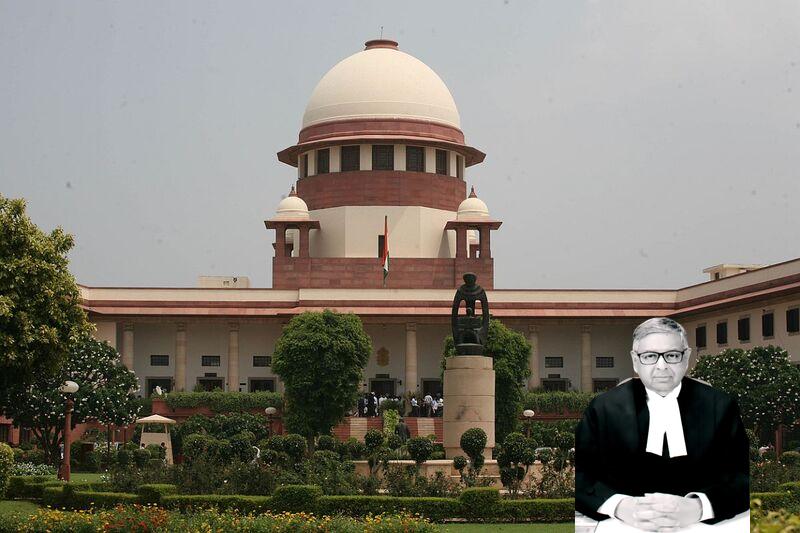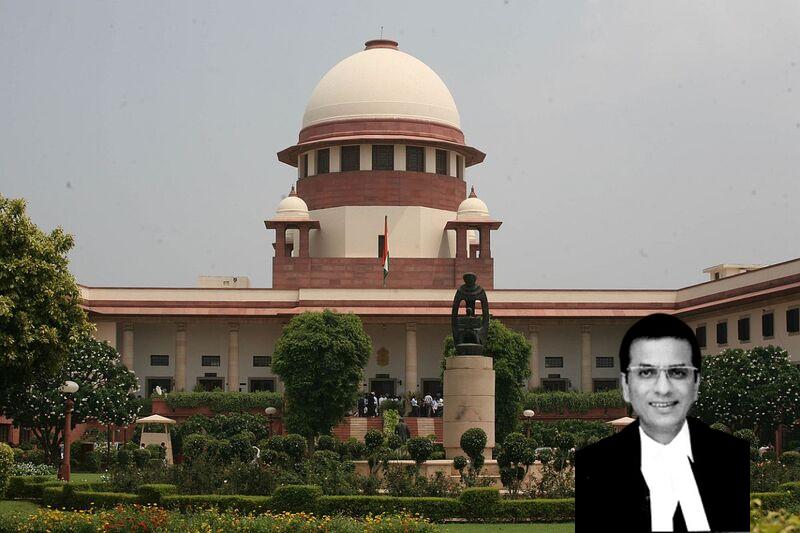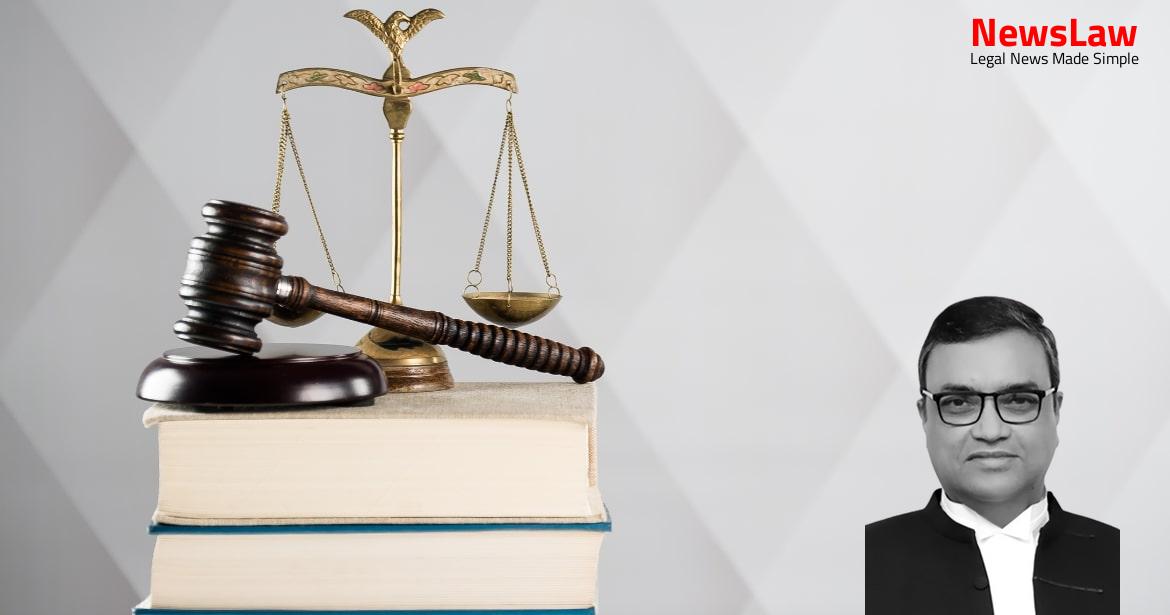Several banks had extended these facilities, being (i) Union Bank of India, (ii) IDBI, (iii) Oriental Bank of Commerce, (iv) Bank of Baroda, (v) Karnataka Bank, (vi) Syndicate Bank and (vii) Punjab National Bank as also the State Bank of India, who is the first respondent in this appeal. The State Bank of Hyderabad, State Bank of Mysore, State Bank of Travancore, State Bank of Bikaner and Jaipur and State Bank of Patiala, had also extended such facilities, but they had merged with the State Bank of India on 01.04.2017. In OA No.1930 of 2014, the proceeding brought by State Bank of Bikaner and Jaipur, recovery certificate was issued on 04.08.2017 for a sum of Rs.5,22,21,750/-.
Before the National Company Law Appellate Tribunal (the Appellate Tribunal), a point was urged, apart from the issue of limitation, that the application had been initiated as per the Reserve Bank of India circular dated 12.02.2018 which was held to be ultra vires the provision of Section 35AA of the Banking Regulation Act, 1949 by this Court in the case of Dharani Sugars and Chemicals Ltd. In its decision taken on 12.01.2021 while admitting the application, it was, inter-alia, observed:- “….We, are therefore, of the view that by accepting liability vide their letter dated 29.01.2020, agreeing to repay the debt, the Corporate Debtor now cannot take a stand that the debt is barred by limitation. In regard to the plea of the Appellant that the Adjudicating Authority in the impugned order even though at paragraph 12 had mentioned that the Corporate Debtor had raised two fold contention (1) that the petition is barred by limitation (2) the petition has been initiated as by the RBI Circular 12.02.2018 which was held ultra virus of section 35 AA of the Banking Regulation Act by the Hon’ble Supreme Court, this Tribunal ongoing through the impugned order is of the considered view that the Adjudicating Authority had not adverted to the same and the said order in this regard has not spelt out reasons. Therefore, this Tribunal is of the earnest opinion that it is desirable that an ‘Adjudicating Authority’ is to disclose its mind in future so that the compulsion of disclosure, guarantees consideration apart from the fact, that the duty to assign reasons introduces clarity and minimizes arbitrariness. As matter of fact, in the instant case when once the Company has/had defaulted and after the initiation of legal proceedings as available to the Lender on that date (Before the Debt Recovery Tribunal) and when the Financial Creditor/Lender had obtained the order(s) in the ‘Original Applications’ and later recovery certificates were issued, and when the Original Applications filed before the Debt Recovery Tribunal(s) had attained finality, thereafter it is for the Lender/Financial Creditor/Decree Holder as matter of ‘Election’ to pursue the recovery mechanism for his/its personal benefits before a ‘competent forum’ or to initiate Insolvency Proceedings for the benefit of ‘stakeholders’ and ‘one and all’. Be that as it may, in view of the detailed upshot, this Tribunal taking note of the respective contentions projected by the Learned Counsels appearing for the parties, considering the facts and circumstances of the present case in a proper perspective, comes to a resultant conclusion that the instant case there is a ‘Financial Debt’ which is due and payable by the ‘Corporate Debtor’. Looking at from any angle, the ‘admission order’ of the section 7 application as against the ‘Corporate Debtor’ by the Adjudicating Authority, (‘National Company Law Tribunal’, Hyderabad Bench in an application filed by the First Respondent/Bank) as Financial creditor on 12.01.2021 in CP (IB) No 625/7/HDB/2019 does not suffer from any material irregularities and patent illegalities in the eye of Law.
Shivakumar Reddy, (2021) 10 SCC 330] in SCC paras 136 and 141, has in unequivocal terms held that once a claim fructifies into a final judgment and order/decree, upon adjudication, and a certificate of recovery is also issued authorising the creditor to realise its decretal dues, a fresh right accrues to the creditor to recover the amount of the final judgment and/or order/decree and/or the amount specified in the recovery certificate. It has further been held that issuance of a certificate of recovery in favour of the financial creditor would give rise to a fresh cause of action to the financial creditor, to initiate proceedings under Section 7 IBC for initiation of the CIRP, within three years from the date of the judgment and/or decree or within three years from the date of issuance of the certificate of recovery, if the dues of the corporate debtor to the financial debtor, under the judgment and/or decree and/or in terms of the certificate of recovery, or any part thereof remained unpaid. The prohibition to institution of suit or continuation of pending suits or proceedings including execution of decree would not mean that a decree-holder is also prohibited from initiating CIRP, if he is otherwise entitled to in law. Consequently, the holder of the recovery certificate would be a financial creditor within the meaning of clause (7) of Section 5 IBC. The appellant’s stand on this position is founded on Section 18 of the Limitation Act, 1963 and he contends that any acknowledgment beyond the period of limitation would not revive the right to sue. Explanation.—For the purposes of this section,— (a) an acknowledgment may be sufficient though it omits to specify the exact nature of the property or right, or avers that the time for payment, delivery, performance or enjoyment has not yet come or is accompanied by a refusal to pay, deliver, perform or permit to enjoy, or is coupled with a claim to set-off, or is addressed to a person other than a person entitled to the property or right, (b) the word “signed” means signed either personally or by an agent duly authorised in this behalf, and (c) an application for the execution of a decree or order shall not be deemed to be an application in respect of any property or right.” Section 238-A of the IBC stipulates: – “Limitation. In absence of amendment of pleadings, the Appellate Tribunal could not have taken such purported acknowledgement of debt for the purpose of extending the limitation period. Requirement of specific pleading on facts constituting acknowledgement or admission of claim has been recognised in the judgment of this Court in the case of Reliance Asset Reconstruction Company Limited -vs- Hotel Poonja International Private Limited [(2021) 7 SCC 352].
We also request you to waive off all the penal interests levied by your bank on the Loan outstanding amount from the date of account became irregular to till date of your notification to us It would be of great relief to us, if you can waive off all the penal interests and penalties and other charges levied on our account and inform us to enable us to plan for repayments. Finally we request you not to issue any public notifications or such actions which will spoil our reputation as well as closes all options for us to raise funds or to make alternative arrangements to repay the loan outstanding amounts. There is a distinction between acknowledgment under Section 18 of the Limitation Act, 1963 and a promise within the meaning of Section 25 of the Contract Act. But again, in absence of averments or pleading, after initiation of insolvency proceeding, any promise made to pay the debt cannot be treated to have cured the fault of limitation in a pre-existing action. Bhojwani -vs- Abhyudaya Co-operative Bank Limited and Another [(2019) 9 SCC 158], on considering the facts involved in that case, came to the finding that when the recovery certificate was issued, the said certificate injured effectively and completely the appellant’s rights, as a result of which limitation would have begun ticking. By this judgment, the right of the financial creditor to invoke the mechanism under the IBC after issue of recovery certificate stood acknowledged as a valid legal course.
The enforcement mechanism for a recovery certificate is an independent course, which a financial creditor may opt for realisation of its dues crystalised under the 1993 Act, instead of chasing the mechanism under the 1993 Act. A question that arises now is as to whether the debts in connection with the recovery certificate issued in the year 2015 could form subject matter of an application under Section 7 of the IBC filed on 06.09.2019. The provisions of Section 19 (22A) of the 1993 Act specifies :- “ Section 19 Application to the Tribunal: -……….. (22A) Any recovery certificate issued by the Presiding Officer under sub-section (22) shall be deemed to be decree or order of the Court for the purposes of initiation of winding up proceedings against a company registered under the Companies Act, 2013 (18 of 2013) or Limited Liability Partnership registered under the Limited Liability Partnership Act, 2008 (6 of 2009) or insolvency proceedings against any individual or partnership firm under any law for the time being in force, as the case may be. [When] the decree or order becomes enforceable or where the decree or any subsequent order directs any payment of money or the delivery of any property to be made at a certain date or at recurring periods, when default in making the payment or delivery in respect of which execution is sought takes place: Provided that an application for the enforcement or execution of a decree granting a perpetual injunction shall not be subject to any period of limitation.” 14.
It is thus clear that once a recovery certificate is issued by the Presiding Officer under sub- section (22) of Section 19 of the Debts Recovery Act, in view of sub-section (22-A) of Section 19 of the Debts Recovery Act it will be deemed to be a decree or order of the Court for the purposes of initiation of winding-up proceedings of a company, etc. In any case, when the legislature itself has provided that any recovery certificate issued under sub-section (22) of Section 19 of the Debts Recovery Act will be deemed to be a decree or order of the court for initiation of winding-up proceedings, which proceedings are much severe in nature, it will be difficult to accept that the legislature intended that such a recovery certificate could not be used for initiation of CIRP, which would enable the corporate debtor to continue as an on-going concern and, at the same time, pay the dues of the creditors to the maximum



